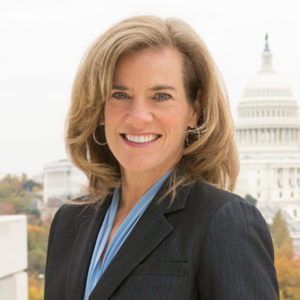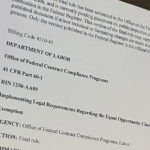Public school students are free to pray voluntarily or read religious texts, while teachers and administrators can neither encourage nor discourage student involvement in religious activity, according to guidelines released May 15 by the U.S. Department of Education.
Students can organize religious groups to the same extent that they are allowed to organize other noncurricular school groups, and school officials can neither endorse particular religious groups or discriminate against them.
Teachers can pray privately—or with other teachers who choose to participate voluntarily—during the workday when they are not acting in their official capacities, but they cannot compel or coerce students to pray.

In other words, the Supreme Court’s ruling in Kennedy v. Bremerton did not dramatically change decades-long guidelines for prayer and religious expression in public school classrooms.
In that high-profile case, the Supreme Court ruled a high school football coach’s post-game prayers at mid-field were “doubly protected by the Free Exercise and Free Speech Clauses of the First Amendment.”
The Department of Education noted the latest guidelines were developed in consultation with its own general counsel and with the office of legal counsel at the U.S. Department of Justice to ensure the “updated guidance reflects the current state of the law concerning constitutionally protected prayer in public elementary and secondary schools.”
‘Welcoming and inclusive learning environments’
In addition to the detailed guidelines, Miguel Cardona, secretary of education, also released a letter to state school officials and to district and school leaders.
“Protecting First Amendment freedoms in public schools is essential to our democracy. The Department strives to foster welcoming and inclusive learning environments for all students,” Cardona wrote.
“Such environments are fundamental to the principle of religious freedom and necessarily entail respecting rights to engage appropriately in private prayer and religious expression in public schools. Schools are uniquely positioned to assist youth in developing the critical and necessary skills that foster such a culture of respect.”
Sign up for our weekly edition and get all our headlines in your inbox on Thursdays
Cardona also posted on Twitter a two-minute video regarding the updated guidelines.
“For many students, their faith is the core of who they are. Everyone should be free to learn and show up as their true selves,” he tweeted.
Some matters are clear, well-established governing constitutional principles. For example, the guidelines state, “A public school and its officials may not prescribe prayer to be recited by students or by school authorities.”
Neither coercion nor discrimination
At the same time, the guidelines draw a clear distinction between government-sponsored religious expression and private, voluntary religious expression.
“Nothing in the First Amendment, however, converts the public schools into religion-free zones, or requires students, teachers, or other school officials to leave their private religious expression at the schoolhouse door,” the guidelines state.
“The line between government-sponsored and privately initiated religious expression is vital to a proper understanding of what the Religion and Free Speech clauses of the First Amendment prohibit and protect.
“Although a government may not promote or favor religion or coerce the consciences of students, schools also may not discriminate against private religious expression by students, teachers, or other employees. Schools must also maintain neutrality among faiths rather than preferring one or more religions over others.”
Left unstated in the guidelines is whether those principles can be reconciled with the mandatory posting of a Protestant version of the Ten Commandments in classrooms or school districts hiring chaplains. The Texas Senate approved a bill requiring the Ten Commandments to be posted in public school classrooms, and both chambers of the Texas Legislature approved a bill permitting districts to hire school chaplains.
‘Faith freedom for all students’
Holly Hollman, general counsel of the Baptist Joint Committee for Religious Liberty, commended the Department of Education guidelines.

“The government should never tell students how, when or whether to pray. The U.S. Department of Education’s new guidance does a good job protecting students of all faiths and students who don’t practice a faith. It’s clear that the Biden administration understands the vital role that public schools play in ensuring faith freedom for all students,” Hollman said.
“While occasionally hard questions arise, most debates over legal and constitutional protections for religious expression in public schools have been settled for a long time. The Biden administration’s guidance is in line with that from prior administrations from both parties, going back to the Clinton years.”
Hollman added: “The Biden administration is correct to note that religious freedom protections were not altered by the U.S. Supreme Court’s decision in Kennedy v. Bremerton. While we were critical of the decision, the court’s approval of a coach’s private, brief prayer while his players were otherwise occupied should not be read as opening the door to more government-sponsored prayer in public schools.”
Hollman commended the balanced approach of the guidelines—protecting the free exercise of religion, while guarding against coercion by government employees.
“Students should be free to express their religious beliefs by praying, wearing religious clothing and accessories, and discussing their faith with their peers. Religious groups should be free to meet on school grounds, and educators should teach about religion as an academic subject,” she said.
“Religious liberty in public schools is safeguarded by forbidding teachers and other government employees from leading students in religious exercises while on duty or otherwise coercing students in matters of religion.”














We seek to connect God’s story and God’s people around the world. To learn more about God’s story, click here.
Send comments and feedback to Eric Black, our editor. For comments to be published, please specify “letter to the editor.” Maximum length for publication is 300 words.